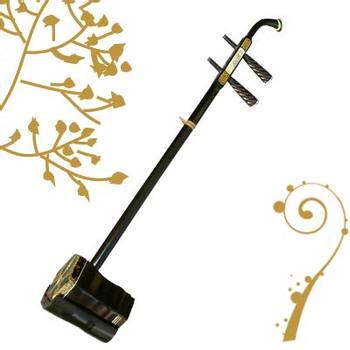Erhu is an ancient Chinese traditional instrument. Its name comes from its two parallel strings. Erhu originated over one thousand years ago in an ethnic group in the north of ancient China. Capable of making expressive and haunting sound, Erhu is extremely popular in China today as a medium for both traditional and contemporary music as well as plays an important role in both solo and orchestral performances. 
Conversation Practice
lā èrhú
拉 二胡
to play Erhu(two-string Chinese violin)
hui
会
Be able to
shénme...dōu...
什么.....都......
wahtever..all
lòu yì shǒu
露 一 手
have a try; show off
shuō bǘ dìng
说 不 定
maybe; perhaps
qī dài
期 待
look forword to
A: Tǐngshuō zuìjìn nǐ zài xuéxí lā èrhú, shì ma?
听说 最近 你 在 学习 拉 二胡,是 吗?
I heard that recently you are learning to play Erhu(two - string Chinese violin )?
B: Duì, èrhú shì yìzhǒng zhōngguó chuántǒng yuèqì。
对 二胡 是 一种 中国 传统 乐器
Right, Erhu is a kind of Chinese traditional instrument.
A: Wǒ zhǐ huì lā xiǎotíqín, shénme zhōngguó yuèqì dōu bù huì
我 只 会 拉 小提琴 什么 中国 乐器 都 不 会
I only can play the violin, I can`t paly any Chinese instrument.
B: Děng wǒ xué huì le, wǒ gěi nǐ lòu yì shǒu.
等 我 学 会 了 我 给 你 露 一 手
Wait until I have learned it, I will show off to you.
A: Hǎo ā, shuōbúdìng wǒmen hái kěyǐ hézuò yǎnzòu.
好 啊, 说不定 我们 还 可以 合作 演奏。
OK, maybe we can also cooperate on a performance.
B: En, wǒ hěn qīdài!
嗯 我 很 期待!
Yeah, I`m looking forward to it!
